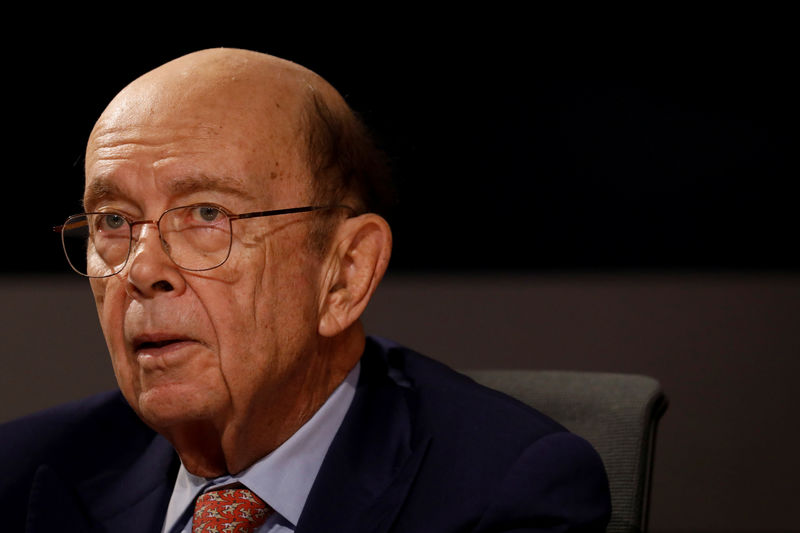This post was originally published on this site
https://i-invdn-com.akamaized.net/trkd-images/LYNXMPEFB220P_L.jpg
By Alexandra Alper and Karen Freifeld
(Reuters) – China’s telecoms giant Huawei has been encouraging its suppliers to violate U.S. law by telling them to move operations offshore in a bid to avoid U.S. sanctions, Commerce Department Secretary Wilbur Ross told Reuters on Tuesday.
In May, the U.S. government placed Huawei Technologies Co Ltd on a trade blacklist known as the entity list, over national security concerns, forcing some suppliers to apply for special licenses to sell equipment to the company.
But the U.S. government has become frustrated by the limitations of the blacklisting to keep overseas suppliers from selling to the company, the world’s largest telecoms equipment supplier, Reuters reported last week.
On Tuesday, Ross said in an interview that those frustrations extended to a push from Huawei to move its supply chain overseas.
Huawei has “been openly advocating companies to move their production offshore to get around the fact that we put Huawei on the list,” Ross said. “Anybody who does move the product out specifically to avoid the sanction… that’s a violation of U.S. law. So here you have Huawei encouraging American suppliers to violate the law,” he added.
Huawei spokesman Rob Manfredo declined to comment.
Reuters reported last week that the U.S. government may expand its power to stop more foreign shipments of products with U.S. technology to Huawei, by broadening the reach of two key rules to capture more products.
One of those regulations, known as the De minimis Rule, dictates how much U.S. content in a foreign-made product gives the U.S. government authority to block an export. Currently the de minimis threshold for China is set at 25%, meaning that if American content constitutes more than a quarter of the value of the item, U.S. rules apply to its export to China.
Ross declined to say whether such rule changes were imminent. However, he said Huawei’s advocacy of suppliers moving offshore “has flagged an issue we’ve been starting to deal with,” that is, whether the 25% threshold is right for China.
“Whether 25% is forever and all time the right ratio, that’s something to be resolved,” Ross said, adding that the agency was always considering such moves.
(Additional Reporting by David Shepardson; Editing by Chris Sanders and Edward Tobin)
Fusion Media or anyone involved with Fusion Media will not accept any liability for loss or damage as a result of reliance on the information including data, quotes, charts and buy/sell signals contained within this website. Please be fully informed regarding the risks and costs associated with trading the financial markets, it is one of the riskiest investment forms possible.

